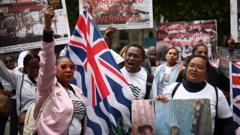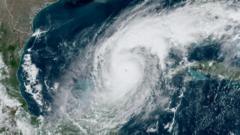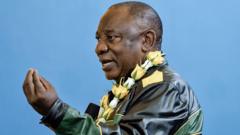Originally dismissed by national security officials, President Trump's focus on granting asylum to white South African farmers has gained traction, reshaping U.S. refugee policies in an unprecedented manner.
Trump Administration's Shift in Policy: Focus on White South African Farmers

Trump Administration's Shift in Policy: Focus on White South African Farmers
The Trump administration's foreign policy has shifted dramatically, prioritizing white South African farmers while sidelining other refugee groups.
The Trump administration's approach to South Africa has undergone a significant transformation, driven by the belief that white South African farmers, an ethnic minority with historical ties to apartheid, require urgent assistance. The catalyst for this shift dates back to a May 2019 discussion where President Trump diverted a conversation on national security to express his interest in granting asylum to these farmers. This sentiment, according to former national security advisor John R. Bolton, seemed to stem from Trump's fascination with narratives propagated by white Afrikaner activists, albeit initially without substantial action.
Fast forward to May 2025, and this initial idea has escalated into a more formalized policy direction as the first group of Afrikaners arrives in Washington, symbolizing a drastic pivot in refugee policy. The Trump administration has begun prioritizing the resettlement of white South Africans while putting a hold on the refugee program for other marginalized groups, including Africans who have endured years in refugee camps and Afghans who assisted U.S. forces during the Afghanistan conflict.
This controversial development raises fundamental questions regarding the criteria and motivations guiding U.S. immigration policy. Criticism arises concerning the implications of such preferential treatment, particularly when juxtaposed against the challenges faced by others in dire need of resettlement. The administration defends its actions by framing them as a necessary response to the alleged persecution faced by these white farmers.
As this policy continues to unfold, observers are closely monitoring its potential impacts on U.S.-South Africa relations and the broader landscape of global refugee assistance. The allocation of resources and prioritization inherent in the policy shift highlights not only a stark divergence from established practices but also reflects the intricacies of political influence on humanitarian efforts, raising concerns about equity and fairness in the international refugee framework.























